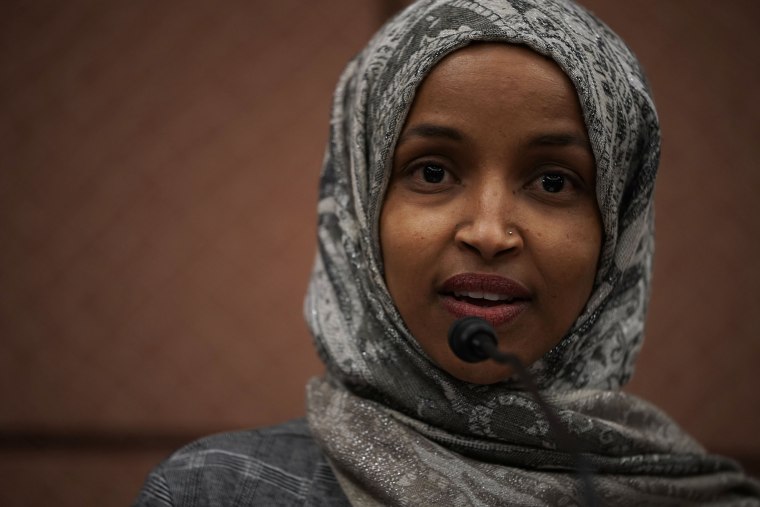Facing intense criticism from her own allies, Rep. Ilhan Omar (D-Minn.) apologized "unequivocally" yesterday for some controversial tweets about the Israel lobby and its efforts to influence U.S. foreign policy. The congresswoman, just a month into her tenure on Capitol Hill, stood by her criticisms of the "problematic role of lobbyists in our politics," but expressed gratitude to her colleagues who helped educate her "on the painful history of anti-Semitic tropes."
Swift Democratic action on this -- from Omar's tweet to her apology took less than 24 hours -- should probably help resolve the situation, though Republican leaders will probably make every effort to keep the story alive. Indeed, House Majority Leader Kevin McCarthy (R-Calif.) has called on Democratic leaders to remove the Minnesota lawmaker from the House Foreign Affairs Committee.
That would be the same McCarthy who felt the need to delete a tweet last fall after he accused three prominent Jewish Americans of trying "to buy" the 2018 midterms. McCarthy also allowed Rep. Steve King (R-Iowa) to chair the House Judiciary Committee's panel on "the Constitution & Civil Justice" in the last Congress. (McCarthy only recently stripped King of his committee assignments.)
Donald Trump apparently had some concerns of his own.
Speaking Monday night aboard Air Force One, Trump said Omar "should be ashamed of herself" and that her apology was inadequate.Asked what she should say, he replied, "She knows what to say."
Not to put too fine a point on this, but if there's one person in the United States who should avoid criticizing the adequacy of a politician's apology in the wake of an offensive tweet, it's Donald J. Trump.
But even if we put that aside, there's the president's own history on this issue that undermines his credibility on the subject.
Several months into his presidential campaign, for example, Trump spoke to the Republican Jewish Coalition and said, "You're not gonna support me because I don't want your money. You want to control your politicians." He added, "I'm a negotiator -- like you folks."
Several months later, the Republican promoted anti-Semitic imagery through social media. In the closing days of the 2016 campaign, Trump again faced accusations of anti-Semitism, claiming Hillary Clinton met "in secret with international banks to plot the destruction of U.S. sovereignty in order to enrich these global financial powers."
As president, Trump and his team have managed to screw up recognition of International Holocaust Remembrance Day; he invited right-wing Christian pastors with a history of controversial rhetoric toward Jews to the opening of a new embassy in Israel; he praised the "very fine people" among the bigots in Charlottesville; and he used language the Anti-Defamation League described as "mind-boggling."
And did I mention Vice President Mike Pence's appearance with a "Messianic rabbi"?
My point is not that Trump and his team have engaged in offensive antics, which in turn excuses Ilhan Omar's tweets. That's not how this works. Offensive rhetoric is offensive rhetoric no matter the party or ideology, and two wrongs obviously don't make a right.
Rather, what the president should try to understand is that credibility counts -- and on this issue, he doesn't have any. The same is true of his party: are the Republicans who've justifiably criticized the Minnesota Democrat been equally eager to denounce Trump's rhetoric on the same subject? If not, why not?
